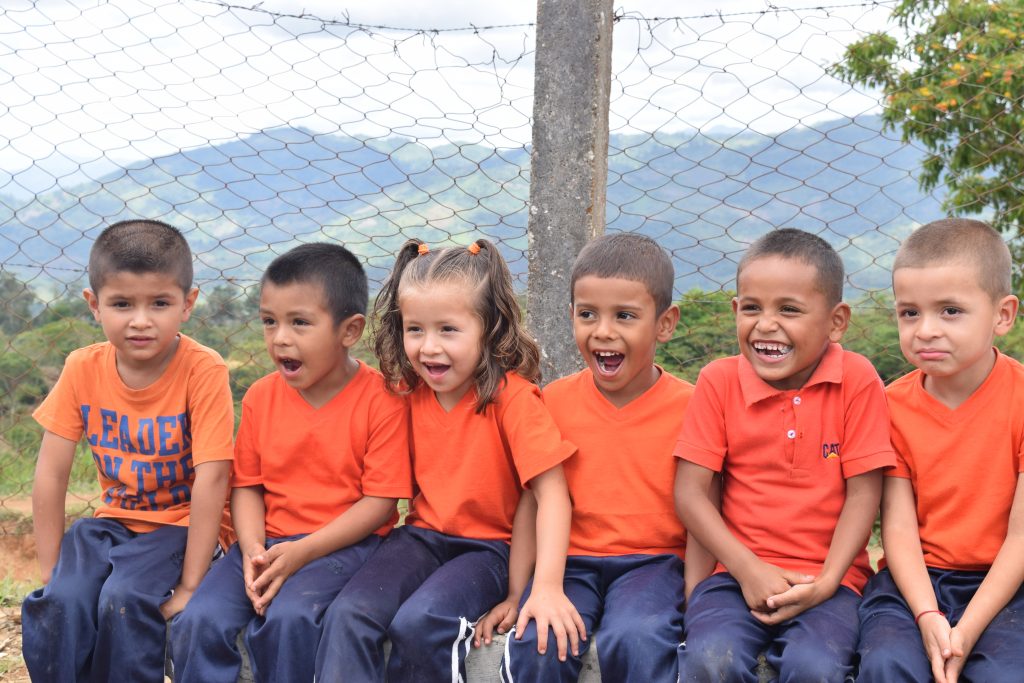Written by Olivia Laramie, PWW Volunteer
This year, UNICEF and Pure Water for the World (PWW) have come together with a collaborative focus on implementing WASH (water, sanitation and hygiene) programs that focus on climate change in 226 schools in Honduras.
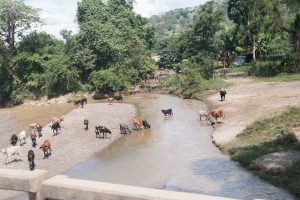 PWW is working with teachers to build awareness about environmental protection and resilience to climate change. This includes emphasizing the importance of maintaining clean water sources, conserving the natural environment, and constructing latrines and sanitation facilities as part of a multi-barrier approach to preventing waterborne diseases, which frequently arise from unsanitary practices.
PWW is working with teachers to build awareness about environmental protection and resilience to climate change. This includes emphasizing the importance of maintaining clean water sources, conserving the natural environment, and constructing latrines and sanitation facilities as part of a multi-barrier approach to preventing waterborne diseases, which frequently arise from unsanitary practices.
PWW’s education programs will help the school communities improve their preparedness for climate change through the creation of climate resilient WASH environments, which will ensure children have reliable access to water and are 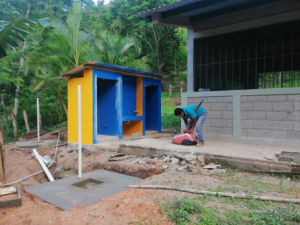 able to attend school even during long droughts. These resilient environments include the use of rainwater harvesting, sanitary facilities, healthy hygiene practices, water treatment, and safe storage.
able to attend school even during long droughts. These resilient environments include the use of rainwater harvesting, sanitary facilities, healthy hygiene practices, water treatment, and safe storage.
As part of this collaborative program, the PWW team is also training nine water boards (locally established groups of water managers), providing them with the understanding and knowledge to develop their own Water Security Plans. These plans incorporate their individual communities’ identified risks with their water source surroundings as well as identify planned actions against potential stresses created by climate change.
Additionally, PWW understands the vital importance of clean air and its impact on the health of the environment and humans. Our trainings include content that address the issue of air pollution, including the importance of decreasing wood-burning for boiling water, which both improves air quality and helps to combat deforestation.
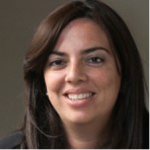 María Regina Inestroza de Carias (pictured) is PWW’s Honduras Country Director. When asked what her favorite part of the PWW’s climate and environmental projects are she couldn’t choose just one.
María Regina Inestroza de Carias (pictured) is PWW’s Honduras Country Director. When asked what her favorite part of the PWW’s climate and environmental projects are she couldn’t choose just one.
“It’s hard to have one favorite,” Maria shares. “As an environmental engineer, I get excited about all of the solutions that are related to protecting the environment and an extra bonus is the thought that this project will help to improve the health of the families in my country.”
PWW is leading activities that are being carried out among the educational community. These activities include updating and implementing School Safety Plans and implementing practical demonstration solutions to adapt and mitigate the adverse effects of climate change with a focus on WASH and Menstrual Hygiene Management (MHM) services. These demonstrative climate change solutions, with an emphasis on WASH and MHM, will be documented by implementation partners to contribute to the Good Environmental Practices handbook. This handbook is linked to climate change adaptation and mitigation and climate-resilient WASH in schools, within the framework of green and safe schools.
This past year has made a lot of people stop and think about the next steps. We are at an interesting point in human history, in so many regards, and it is important to look at what has been done and what work is still left to do. Maria agrees with this sentiment.
“There is a lot of work ahead,” Maria says, “We love challenges and coming up with innovative, easy-to-use solutions from our experience of working so closely with families. We need to take a panoramic picture of all that has happened in the past few years, especially 2020, learn from our experiences and share with others.”
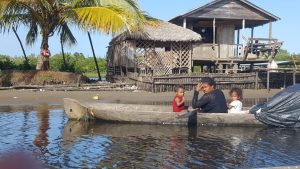 The PWW team will continue this important work with established and future Community Agents as well as local water boards. “We will continue to work in the most vulnerable areas of Honduras, such as La Mosquitia and the dry corridor of El Paraiso, Trojes, as well as with other municipalities..even through the challenges associated with COVID-19.”
The PWW team will continue this important work with established and future Community Agents as well as local water boards. “We will continue to work in the most vulnerable areas of Honduras, such as La Mosquitia and the dry corridor of El Paraiso, Trojes, as well as with other municipalities..even through the challenges associated with COVID-19.”
So what can you do today to help our environment? The PWW team urges everyone to reduce, reuse, and recycle. It’s never too late to start raising awareness within your own family. It’s also very important to continue the discussion with the most vulnerable populations, so they learn the simple measures they can take to contribute to the greater good.
As a parting statement, Maria would like all of our readers to know that “building climate resilience is not just about infrastructure and management practices. It’s about behavioral change and efficient use of our natural resources.”
We encourage everyone to do your part and, together, we can create a healthier, stronger planet for all.

